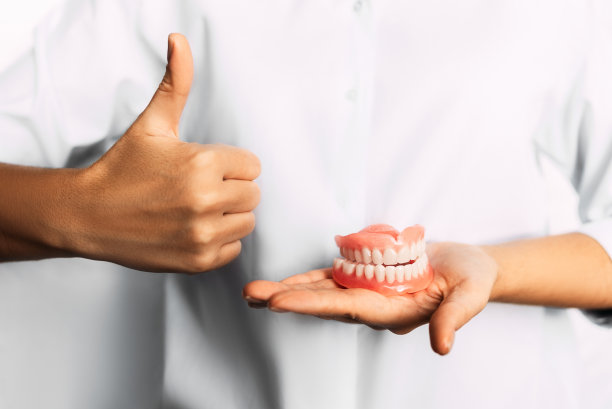Summary: Understanding and preventing periodontal disease is essential for maintaining optimal oral health. This comprehensive guide explores the causes and risk factors associated with periodontal disease, effective prevention methods, treatment options available for affected individuals, and the importance of regular dental check-ups. By becoming aware of these key aspects, individuals can take proactive measures to protect their gums and teeth, thereby ensuring longevity and quality of their oral health. This article provides easily understandable information to empower readers with knowledge about periodontal disease and encourage them to prioritize their dental hygiene.
1. Understanding Periodontal Disease: Causes and Risk Factors

Periodontal disease, also known as gum disease, primarily affects the supportive structures around the teeth, leading to inflammation and potential tooth loss. The primary cause is the accumulation of plaque, which is a sticky film composed of bacteria that forms on the teeth. If not removed through regular brushing and flossing, plaque can harden into tartar, exacerbating the condition.
Several risk factors contribute to the progression of periodontal disease. Smoking is a significant risk factor, as it reduces blood flow to the gums and weakens the immune response. Additionally, certain medical conditions, such as diabetes, can impair healing and increase susceptibility to infections, thereby aggravating periodontal problems.
Genetics also play a role, as some individuals may be more predisposed to developing gum diseases due to inherited traits. Understanding these risk factors is crucial for individuals to assess their susceptibility and take preventative actions accordingly.
2. Effective Prevention Methods for Gum Health
Preventing periodontal disease begins with maintaining good oral hygiene practices. Brushing teeth at least twice a day with fluoride toothpaste and using dental floss daily can significantly reduce plaque buildup, which, in turn, decreases the risk of gum disease. Implementing these routines as part of daily life is the first step toward achieving better oral health.
In addition to personal hygiene, incorporating a balanced diet rich in vitamins and minerals can bolster gum health. Foods high in vitamin C, such as citrus fruits and leafy greens, promote healthy gums and enhance the immune system’s ability to fight infections. Furthermore, avoiding excessive sugar intake helps prevent plaque formation.
Regular dental check-ups are an essential part of preventing periodontal disease. Dentists can perform professional cleanings and identify early signs of gum disease, allowing for timely intervention before the condition worsens. Scheduling visits every six months is generally recommended for optimal care.
3. Treatment Options for Periodontal Disease
For individuals diagnosed with periodontal disease, various treatment options are available depending on the severity of the condition. Non-surgical treatments often begin with scaling and root planing, which involves cleaning the teeth under the gumline to remove plaque and tartar buildup. This procedure can halt disease progression if performed in its early stages.
In more advanced cases, surgical interventions may be necessary. Procedures such as flap surgery, where the gums are lifted back to allow for deep cleaning, or bone grafts to restore lost tissue, may be recommended. These measures can help in re-establishing gum health and securing tooth support.
Antibiotic treatments, either topical or oral, may also be prescribed to control bacterial growth and manage infections associated with periodontal disease. Patients must work closely with their dental care team to determine the most effective treatment plan tailored to their specific needs.
4. The Importance of Regular Dental Check-Ups
Regular dental check-ups are vital in the fight against periodontal disease. During these visits, dentists can effectively assess gum health through professional evaluations and provide guidance on proper oral hygiene practices tailored to individual needs. These professional insights are crucial for preventing the onset of gum diseases.
Moreover, early diagnosis during routine check-ups allows for prompt intervention in the event of gum disease or other oral health issues. Identifying problems early increases the likelihood of successful treatment outcomes, maintaining overall oral health.
In many cases, dentists can offer additional preventive treatments, such as dental sealants or fluoride applications, that help protect the teeth and gums from decay. Regular visits ensure that individuals do not solely rely on personal efforts but rather benefit from professional dental care advancements.
Summary: In conclusion, understanding and preventing periodontal disease is essential in ensuring long-lasting oral health. By recognizing the causes, embracing effective preventative methods, exploring appropriate treatment options, and prioritizing regular dental appointments, individuals can significantly reduce their risk of developing gum diseases. Taking proactive steps in these areas empowers individuals to enhance their oral health and overall well-being.
This article is compiled by Vickong Dental and the content is for reference only.
Vickong Dental
Vickong Dental is a large medical group established in Hong Kong in 2008 by professors from well-known medical universities in Guangdong and Hong Kong, as well as medical doctors from key national '985' universities (including Master's supervisors and senior professors). The chain of branches brings together expert dentists with PhDs and Master's degrees from Hong Kong and Mainland China, committed to providing high-quality dental treatment.
"Vickong Dental Practices the University Motto of 'Healing and Serving Society,' with a Stable Operation for Sixteen Years. It Has Been honored with Hong Kong Enterprise Leaders's Choice,' and is a Global Trusted Implant Center for the Nobel Implant System. Recommended by Hong Kong Metro Broadcast and Guangdong Television, it Serves Customers from Over Thirty Countries and Regions, Gaining the Trust and Favor of Citizens from the Guangdong-Hong Kong-Macau Greater Bay Area and Surrounding Cities.

Thousands of customers' unanimous praise
The most recognized and highly recommended dental service by customers in the Guangdong-Hong Kong-Macau Greater Bay Area
We Ensure You Receive Detailed Care and Attention Here
Hong Kong standards, Shenzhen prices, Your Trusted English-speaking dentists

Vickong Dental Medical-Grade Instrument Disinfection Process
Vickong Dental Medical-Grade Instrument Disinfection Process

Vickong Dental Chain: A Warm and Comfortable Environment for Treatment






Appointment Hours

Q&A
Why choose Vickong Dental?
Vickong Dental practices the university motto 「Medicine to Benefit Society」, with each branch bringing together highly qualified dentists with doctoral and master’s degrees from Hong Kong and the Mainland, and has maintained seventeen years of steady operation。Recipient of 「2024 Hong Kong Enterprise Leaders Brand」, 「2025 Hong Kong Enterprise Leaders Brand」, a Nobel Biocare Global Trusted Implant Center, and a brand recommended by Metro Radio Hong Kong and Guangdong TV。
To date, we have served customers from more than thirty countries and regions,earning exceptionally high word-of-mouth recognition and trusted recommendations from residents across the Guangdong-Hong Kong-Macao Greater Bay Area and surrounding cities
We have eight major branches in Zhuhai、Shenzhen,and a consultation and service assurance center in Hong Kong,so you can book a free consultation at any time for any questions,which is very reassuring.
If I do not accept the quotation after the CT scan, will I be charged??
No! As long as the actual treatment has not started, you will not be charged any fees.
Will there be any additional charges during the treatment process?
No, there won’t be any additional charges. Before treatment begins, we will clearly explain the treatment plan and its corresponding fees. Only after the patient agrees and signs the consent form will we proceed with the dental service.
Can I pay in Hong Kong dollars?
Yes. Vickong Dental accepts payment in Hong Kong dollars. The amount will be converted based on the exchange rate of the day, and the applicable rate will be clearly communicated to you in advance.
Can I reschedule my appointment at any time?
Yes. Please contact us via **WeChat** or **WhatsApp** as early as possible, providing your original appointment time and details, along with your preferred new date and time slot for rescheduling.













